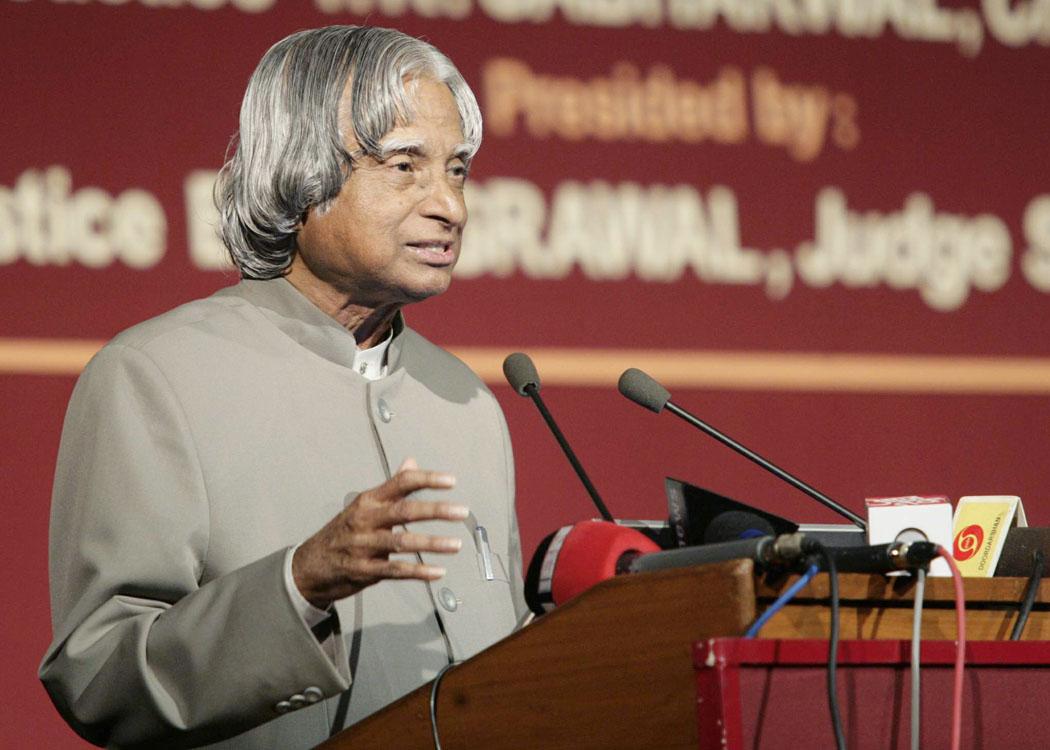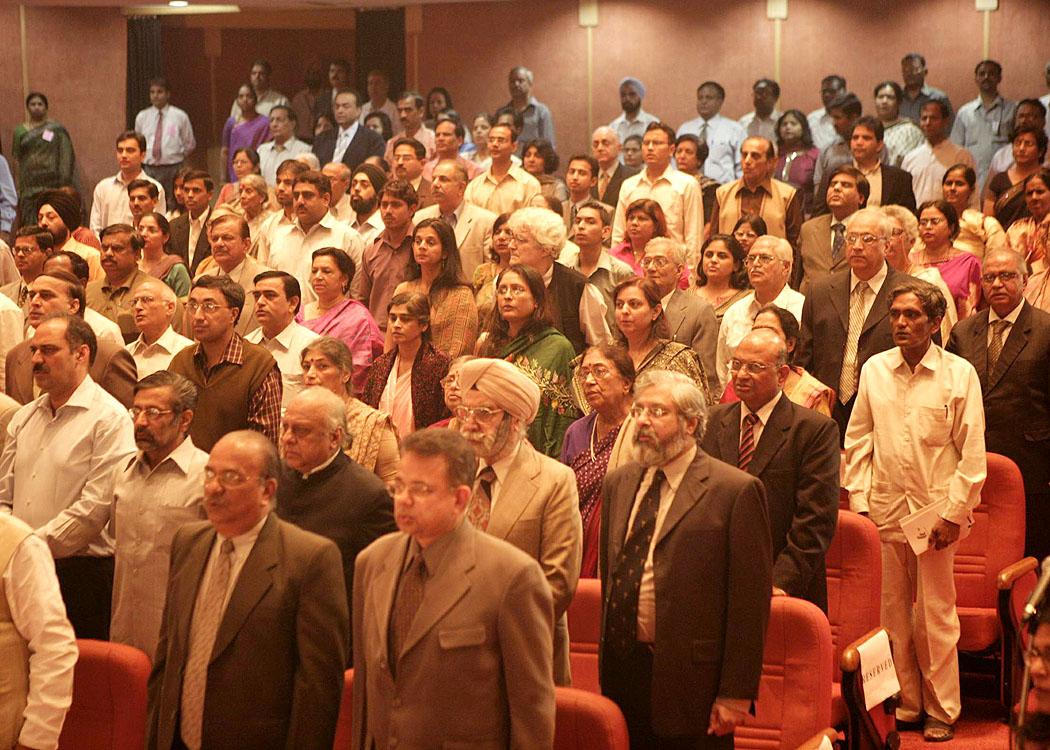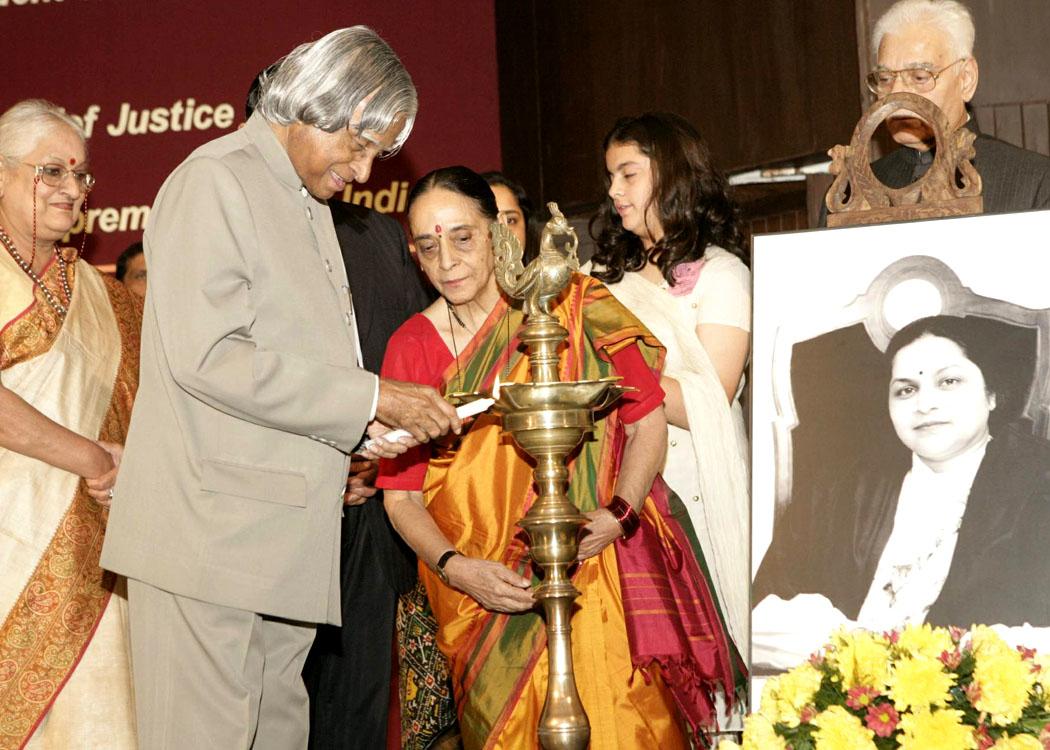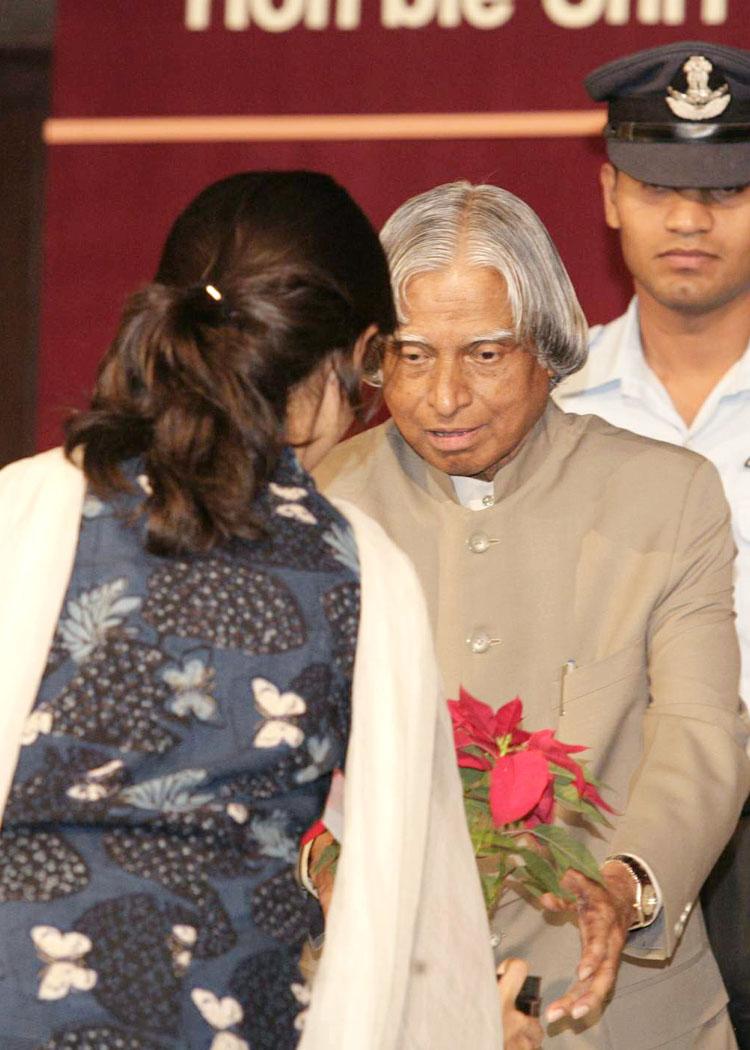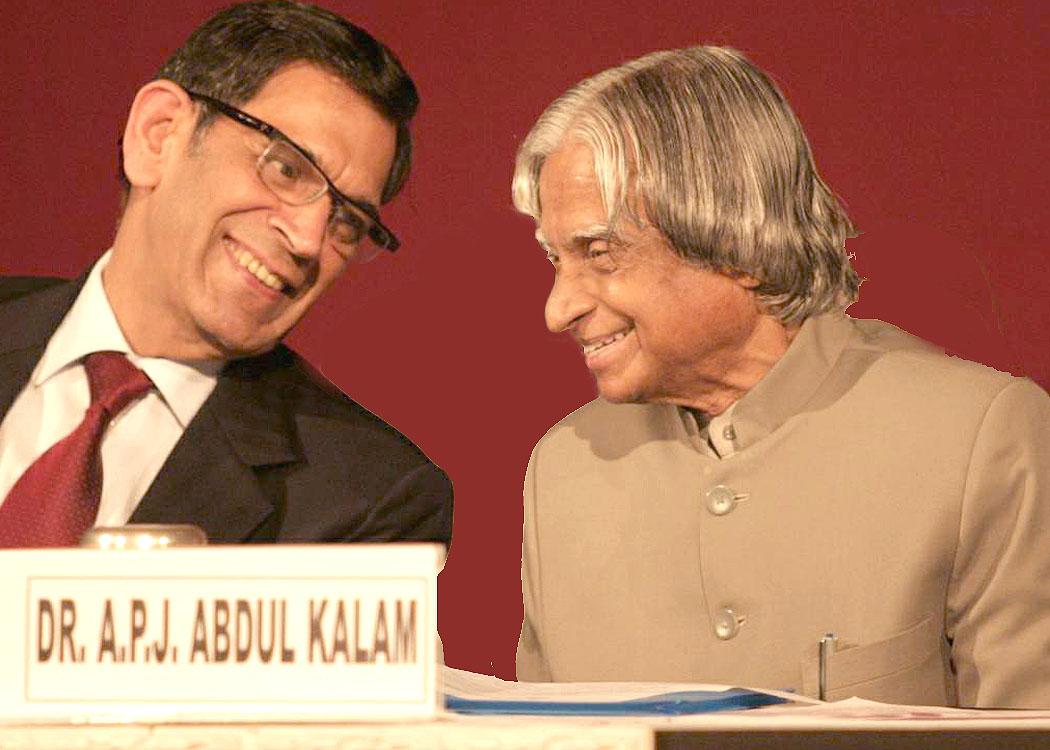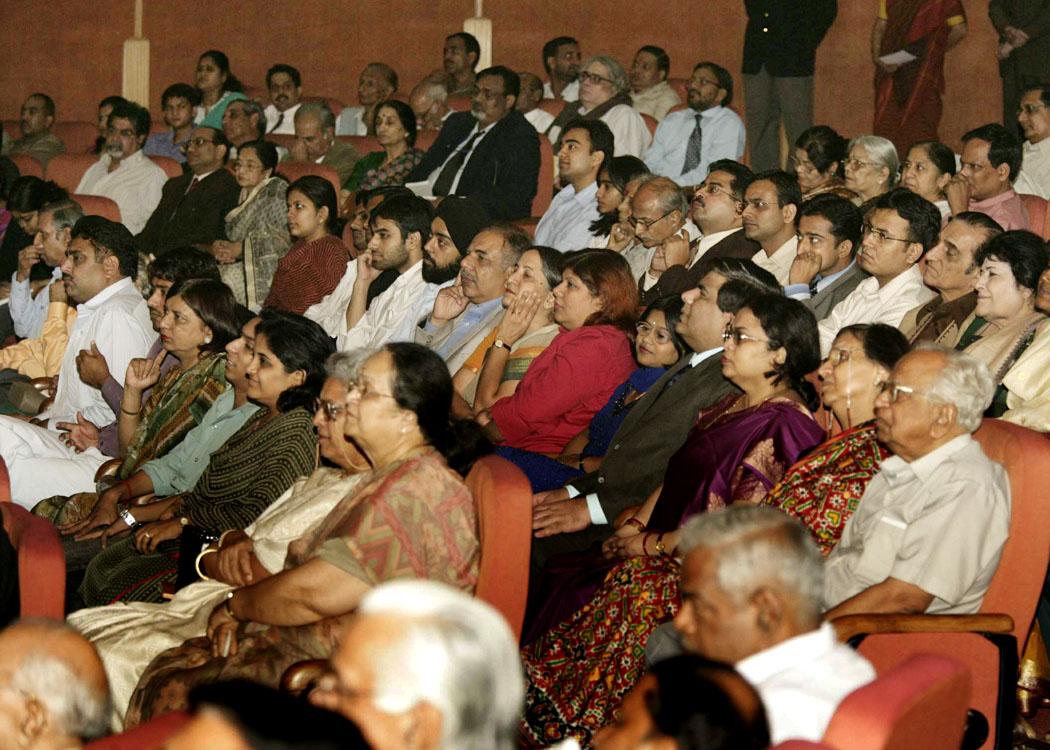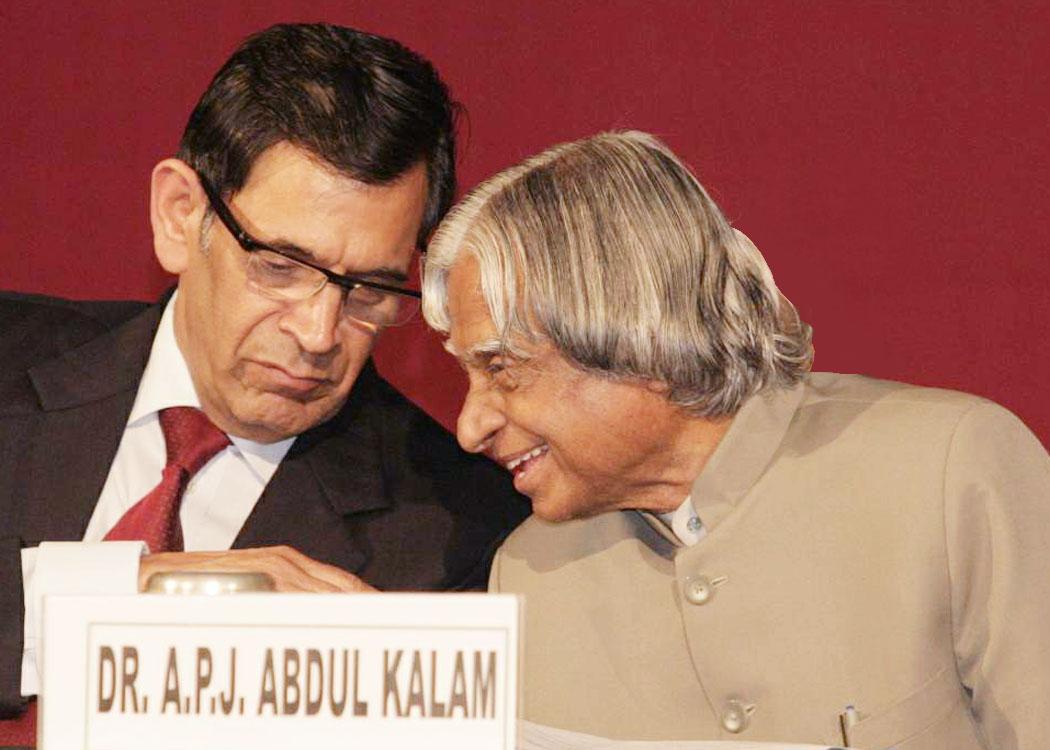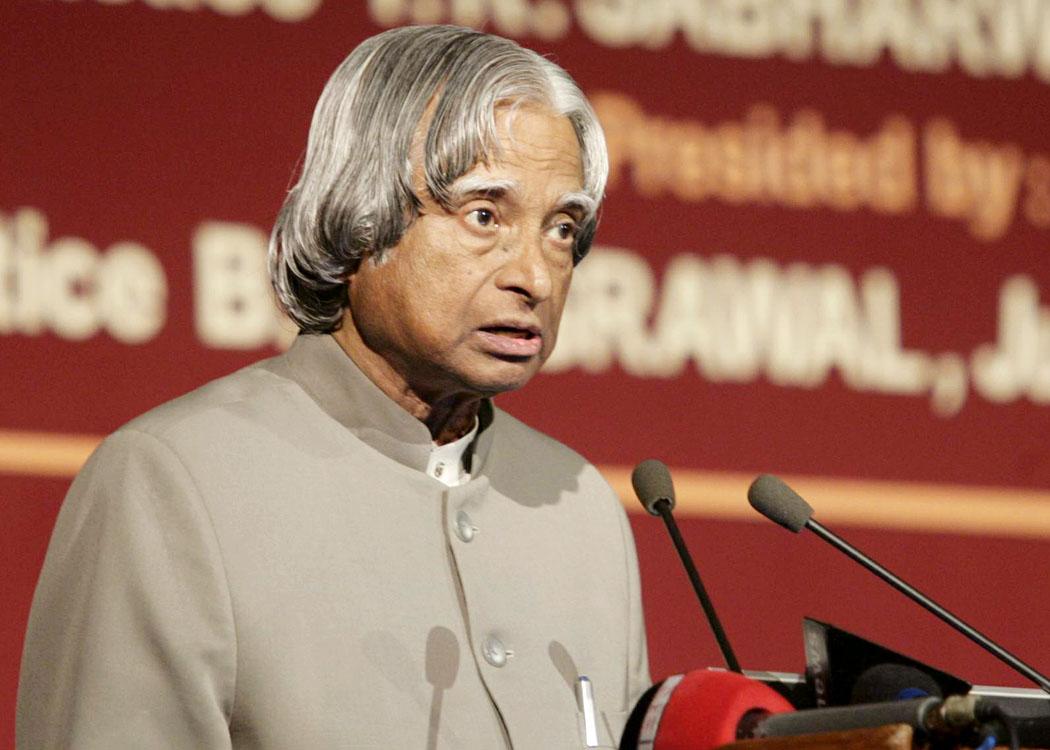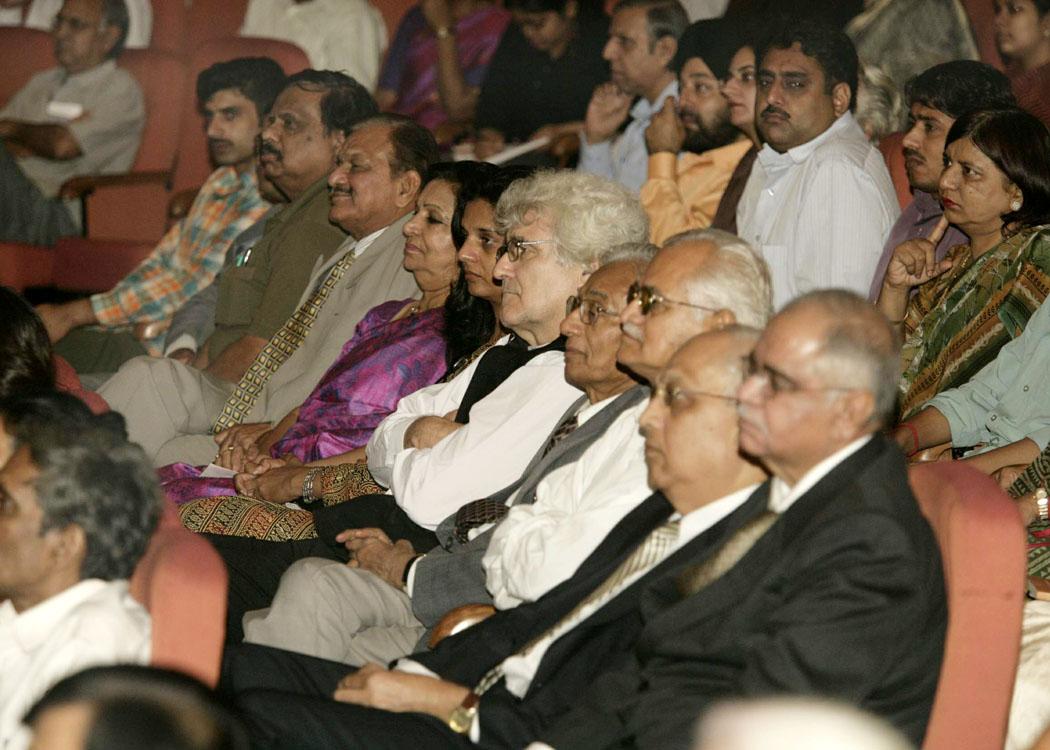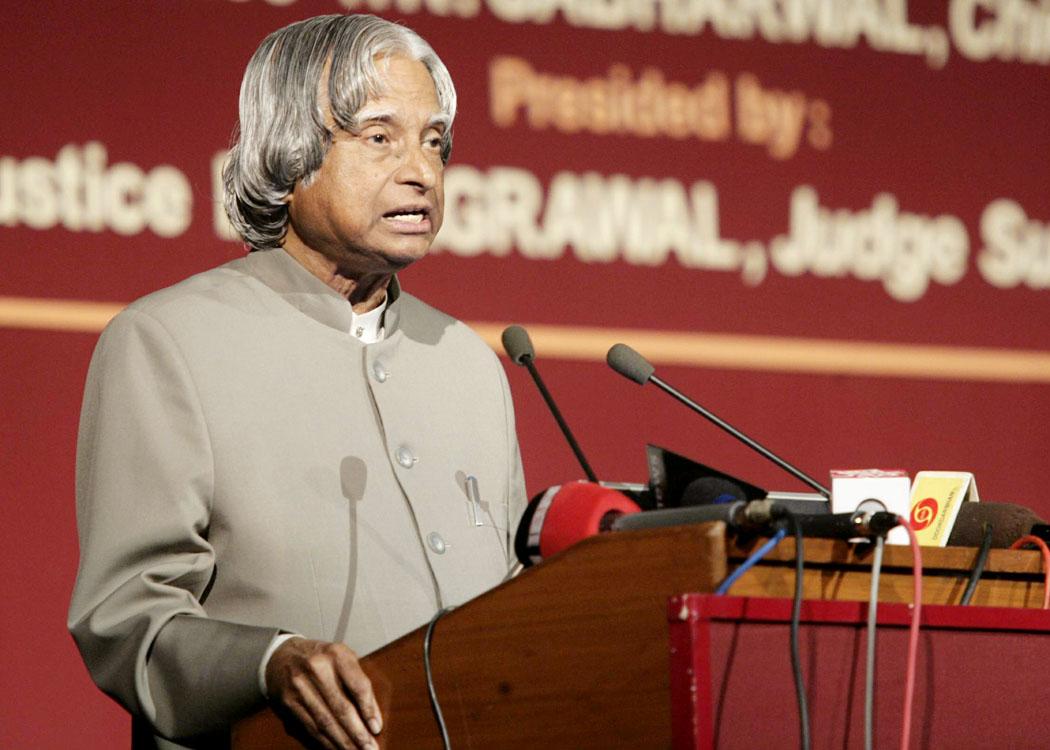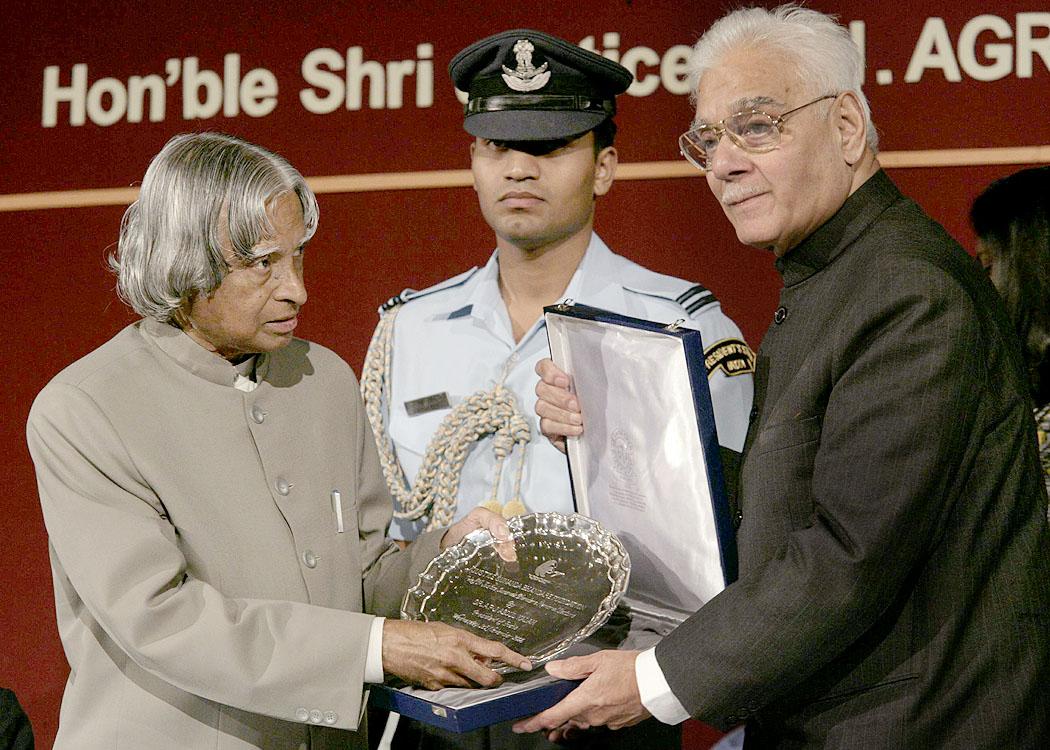12th Justice Sunanda Bhandare Memorial Lecture, New Delhi
New Delhi : 01-11-2006
Judiciary and its multi-dimensions
"Search for truth is the foundation of judiciary"
I am delighted to participate in the 12th Justice Sunanda Bhandare Memorial lecture organized by Justice Sunanda Bhandare foundation. I greet the Managing Trustee and the members of the Justice Sunanda Bhandare foundation, members of the Bar Association, distinguished legal personalities and guests.
Promoting social order through justice
As I gathered, I would like to recall the reputation of Justice Sunanda Bhandare as a dependable lawyer and a person sensitive to discrimination against women. During her career she had been telling her friends, a woman has to excel before she can be regarded as an equal to man. She is quoted to have said during an address to the United Lawyers? Association that ?a woman?s place in society marks the level of civilization.? Her paper to the Conference of National Association of Women Judges in Washington about ?Judges as instruments of social change? is definitely an important message for all the members of the judiciary and the legal community.
Justice Sunanda Bhandare?s approach to dispensation of justice was characterized by a conscientious feel for the total welfare of each individual and completely devoid of any malice or even the mildest tinge of retribution. Her conscience, which espoused the noblest of ideals of civilized human existence, guided her throughout in her thinking and actions and that alone made her stand out in a crowd as a glittering example of ultimate rectitude, symbolic of the complete refinement of her very soul. When I am in the midst of the judicial and legal community, I would like to discuss the topic on ?Judiciary and its multi-dimensions?.
India on the march
India, a country with its rich historical and cultural heritage, with its talented human resource and with its well entrenched democratic polity is in its march towards the vision of developed India by 2020. While it has made significant progress in various areas of development, the challenges before it are also daunting. While on the one hand it has to bring up 220 million people living below poverty line, it has to develop advanced technologies to meet problems of society in every field. It has to deal with all aspects of globalization, to combat the evil of terrorism and ensure the growth of the nation with a human face. The transformation taking place in the country would call for every discipline to rise to the occasion and support the development process. In the last four years, I have been meeting Indian citizens of all walks of life and I am sure that the multi-dimensions of judiciary can play significant role along with the other organs of democracy to ensure an economically strong, safe and secure India. The judiciary as provider of justice has to be the conscience keeper of the citizens in enabling equity, justice and order. This requires multiple dimensions of interfaces to reduce conflicts, such as (a) fast and cost effective resolution of conflicts if they become avoidable, (b) to provide legal literacy and awareness to the citizens to meet the challenges of the 21st century, (c) to extend all possible help to needy sections of the society, (d) to resort to e-judiciary to dispense justice in a fast and transparent manner and (e) above all to set ethical standards for the entire society based on the personal standards.
National Social Awakening
It will be appropriate to the hallowed memory of Justice Sunanda Bhandare to have an introspection by all of us about the social awakening needed for the nation. Every civilized society exists not for day-to-day, but lives with a clear perception for the future and the generations to come. Such a situation would presuppose that each individual in such a society would cherish and translate into practice noble ideals of constructive tolerance, positive fellow-feeling and a total commitment to live and let live. Albert Einstein could not have expressed this better when he said: ?Laws alone can?t secure freedom of expression; in order that every man presents his views without penalty, there must be spirit of tolerance in the entire population?. In fact, such an attitude, be it that of an individual or a collection of them i.e. society, is the hallmark of civilization and that is what characterizes and differentiates life from sheer existence. Honesty and integrity - both in thought and action, independence and interdependence ? in their wholesome and positive manifestations, would distinguish a civilized society in its true sense. It is for each individual to strive to inculcate these eternal values in him or her and that alone would be the surest path and unfailing guarantee for a civilized society and its future.
Leadership with Nobility
The national challenges call for leadership in every walk of life where the individuals rise above themselves to fulfill the responsibilities. Our Society is going through a unique dynamics where the impacts are felt due to the shortage of leadership with nobility. It is said that a nation fails not because of economic progress but because of an increase in decision makers with small minds.
As the dynamic judicial system is catching up with societal and technological evolution, the citizens of India look up to this institution with hope as the ultimate protector of human rights and the final resort for dispensation of justice. The unflinching hope the nation cherishes and looks forward to, is the judiciary with its excellence and impeccable integrity. We should do everything to make the judicial system succeed.
This casts a very heavy responsibility on the entire judicial system and participating institutions to live up to the expectations reposed in it and to maintain the sacred aura attached to it unsullied. Qualities of honesty and integrity are synonymous with each member of the judicial system.
Multi-dimensions of Justice delivery system
In this connection I have seen certain positive developments in our society which I would like to discuss.
a. Right to Information Act
Our Parliament has passed the Right to Information Act and it has been in operation for over one year. Number of citizens have been benefited by seeking information on various aspects on Government and Government establishments. Sometimes, the information sought has also led to suggestions for improving the functioning of certain institutions. The system is in the evolutionary path. For deriving maximum benefit from this Act, active participation of all stakeholders such as political leaders, civil services, judiciary, media, societal transformers and the citizens is required. This will also make India a highly participative democracy.
b. Towards a Conflict Free Society
In Chitrakoot, I met Shri Nanaji Deshmukh (Age 90+) and his team members belonging to Deendayal Research Institute (DRI). DRI is a unique institution developing and implementing a village development model, which is most suited for India. Apart from all the development activities, the institute is facilitating a cohesive conflict free society. As a result of this, I understand that the eighty villages around Chitrakoot are almost litigation free. The villagers have unanimously decided that no dispute will find its way to court. The differences will be sorted out amicably in the village itself. The reason given by Nanaji Deshmukh is that, if the people fight among each other, they have no time for development. I consider that this model may be propagated in many parts of the country by societal organizations, judicial organizations and government. Mediators and Conciliators may facilitate such an action.
c. Mobile Legal Aid and Lok Adalat
I have seen the functioning of the Mobile Legal Aid and Lok Adalats in Gujarat and Bihar High courts. Also I have found that all the Mobile Legal Aid and Lok Adalats in different parts of the States are networked. The number of cases settled in each month is being presented. This provides transparency to the villagers and many are coming forward for getting their cases settled. This is one method of taking the justice to the doorstep of the rural citizens who constitute 70% of the Indian population and a good justice delivery system for the rural areas is the need of the hour. I would like to discuss another important societal development of settling the disputes through mediation and reconciliation.
d. Mediation
The human ingenuity has given birth to various alternative dispute resolution systems complementing the traditional time-tested and well-established system and procedure of courts. The concept of mediation and conciliation is one such creative development in our country. The recent statutory recognition has enabled us to introduce them formally in our Courts.
This is definitely a faster method of dispute resolution compared to the conventional court processes. Only thing is that we have to have trained mediators and conciliators, who can see the problem objectively without bias and facilitate affected parties to come to an agreed solution. In my opinion, this system of dispute resolution is definitely a cost effective system for the needy. I am only suggesting that in the cases involving parties from rural areas, the mediators and conciliators may move to the site of occurrence of the problem and resolve the issue. Mediators must possess the qualities of being a role model in the society, impeccable integrity and ability to persuade and create conviction among the parties. I was happy to find that Mediation and Conciliation Centre at Chennai had solved number of family disputes which have been pending for substantial number of years in the last one year. Now I would like to discuss the potential of e-judiciary.
e. Potential of e-Judiciary
Computerization of the Supreme Court, High Courts and the Subordinate courts is essential for the development of e-Judiciary system. From the time the case is registered, till it is disposed off with judgment, the entire processing must take place electronically. This will enable easy search, retrieval, grouping, information processing, judicial record processing and disposal of the cases in a transparent manner and enable quicker disposal of cases. At any time the complainant should be able to find out, what the stage is? Which Court? what date? and what subject will be dealt with by the Court during a particular hearing, enabling the litigant to be fully prepared for the case. Apart from bringing in total transparency in the case, the judges can also see how the case has progressed, how many adjournments have been sought, whether the grounds are trivial or serious and many such information which will make the delivery of justice impartial. In certain courts, e-judiciary system has already started functioning and it has to be extended to all the courts in the country. I am very happy to mention that action for connecting all the fifteen thousand courts in the country from the District Court to the Supreme Court through a Wide Area Network has been approved by the Government. I consider this as a very important step and should be completed through a mission mode and time bound operation. Next area, I would like to talk about is Cyber Crimes.
f. Cyber crimes
Economic prosperity by 2020 will also mean that many of the Indians from now will be doing business in the digital world on the web. In this new era, crime, law and justice will be completely different from the present. In the present law, for example, the jurisdiction will correspond to the location where the crime is committed and where the damage occurs ? very often both being the same location. Whereas in the digital world, the crime may originate from a strange place even outside our own shores and may damage organizational wealth which will be in the digital form in multiple locations. In the 20th century, a nation?s business transactions and wealth creation were based on transfer of materials from one place to the other. In the 21st century wealth is created whenever information in the form of electrons is transferred across the networks in a borderless world. Our judicial system has to build its capacity to define jurisdictions in a way that any crime committed against India or her assets by anyone from anywhere shall be punishable by Indian law. It may be true for other countries also. The Government with judicial community should formulate progressive and innovative crime prevention methods for the digital economy which is one of the vital components of a developed nation. Now let us look study the laws driven by national priorities.
g. Laws driven by national priorities
Opportunities for rapid industrial and economic growth today co-exist with new problems arising out of trade competition and corporate mergers and take-over. Many tiny and small sectors of industries and even artisan goods will be facing the forces of modernization in the form of market forces, technologies and other forms of public information system including advertisements. There are major issues of protecting the local and global environment. Let us look at science and technology which has emerged as a strong force during the current period of human history. Basically science and technology is driven by human curiosity and reasoning and in its best sense aimed at spreading benefits to all people. They are basically universal in outlook. Similarly, laws are meant to protect people, their rights and make them feel secure in the society. I think this is the common meeting ground of Law, Science and Technology, People and Society. Legal instruments must maximize the benefits for our people and nation. Laws must protect the indigenous technologies and trade to the extent they impact peoples living and their welfare as well as ensure national interest.
All the more it is important now that the Indian corporate are transforming into multinationals. We need experts both in bar and judiciary who can effectively deal with the legal systems of multiple nations and protect the interest of our companies who are carrying out business and trade with these countries. Every nation has their own law to protect their wealth and knowledge. Now let me present certain landmark Judgements on environment.
h. Landmark Judgements on Environment
Whenever environment all around us, reaches a stage of high damage potential, timely intervention by courts will have a positive impact. This has been noticed in cases such as introduction of CNG operated automobiles in Delhi, and environment protection in Dehradun. There are many judgments given which have had a positive effect on the environment. Judgements on Environmental protection by the Court of Law, alertness of official mechanism and the peoples participation in an integrated way will definitely bring in sustainable development with the environmental ethics embedded in the peoples way of life. While dealing with environmental issues, it is essential for the administration to find alternate employment avenues to the affected personnel, including training, so that the societal harmony is not disturbed.
So far I have discuss various positive developments in the judicial system of the country. Now I would like to put forward the ethical issues arising out of human genome project which needs the attention of judicial and legal community.
Human genome project - ethical issues
The functional mapping of each of the 40,000 genes through Human Genome project indeed will lead to the understanding of every aspect of our life. Proteomic research in characterization of genes is taking shape. It may even lead to tailor-made medical treatment to suit the person?s genetic make up diminishing the problem of unwanted drug side effects. In our traditional holistic healing system, the same medicine is not given to two different individuals having same disease. Custom built medicine is required looking at the Prakriti of the individual Further discovery, may even lead to fine tuning of human evolution. But one of the big concerns is the legal ownership of the human genome. The conflict has to be resolved nationally and internationally. The typical questions which come to our mind are the following: Who is the owner of the results of the human genome projects and the results of the proteomics research? Who should have access to personal genetic information, and how will it be used? Who owns and controls genetic information? How will genetic tests be evaluated and regulated for accuracy, reliability, and utility? Should parents have the right to have their minor children tested for adult-onset diseases? Are genetic tests reliable and interpretable by the medical community? How do we as a society balance current scientific limitations and social risk with long-term benefits? A national programme on the proteomics of the Indian population should be initiated with the multi-institutional and multi-disciplinary participation as a consortium. This programme will lead to Pharma research and wealth generation. At the same time bio-ethical legal and social issues should be studied as a part of this programme. The legal and judiciary community assembled here may like to study this problem and come up with the legal framework for the country.
Conclusion
India was ruled by many Kings for thousands of years. Every ruler has left a set of laws. Similarly, there were many religions practiced in India and these religions also had their own set of laws. While dealing with cases pertaining to people of certain religion, our judiciary had always accepted their religious laws while pronouncing judgments on personal matters. Latest ruler was the British who ruled us for over two hundred years and gave us the rule of law based on their political, religious and legal experiences. We have been following this for many decades now. Presently, India is going through a phenomenon of knowledge society influencing the information society, the industrial society and the agricultural society through innovation and value addition. Finally, by the year 2020, India will become an economically developed nation. Economically developed status alone has not brought happy societal life in real sense in many countries. That means India while working on mission mode for economic development should also build the values based on our civilizational heritage in the evolution of our society.
Perhaps what we are today, perhaps what we enjoy today, is almost entirely due to glorious past which very few nations in the present day world can be proud of. But then, it is one thing to have such a past and pride yourself about it; but it is entirely another to live up to it and to enrich it further so that posterity will have every reason and justification to be proud of us as we are of our past. What is required now is a constant, positive push to inculcate in each one of us the ideals that are essential for building up a brilliant future that would truly be a logical extension of the brilliant past.
Once again let me greet all the participants of 12th Justice Sunanda Bhandare Memorial lecture and my best wishes for success in all your endeavours.
May God bless you.

